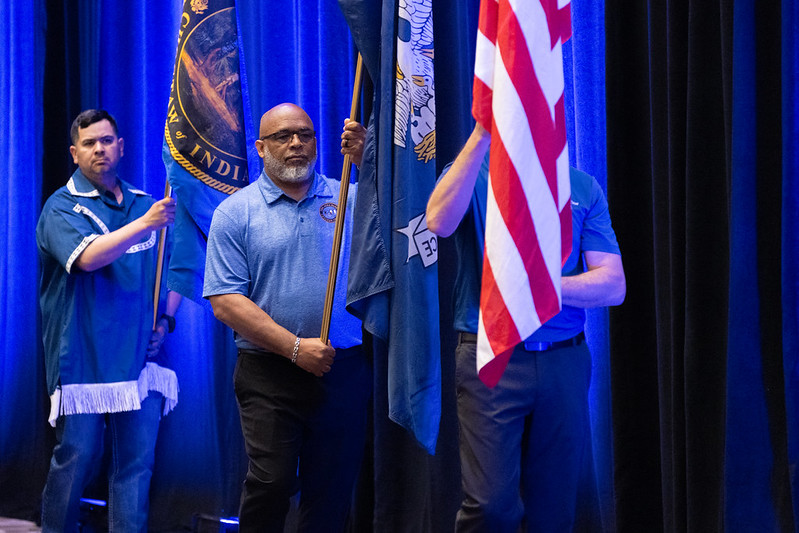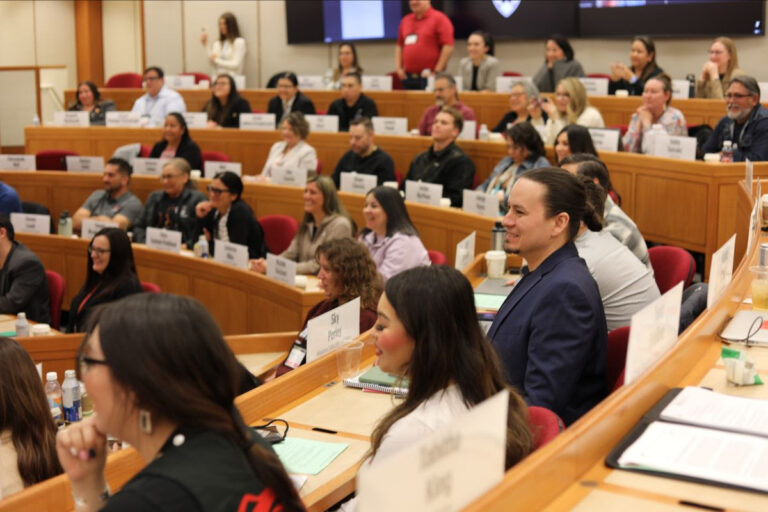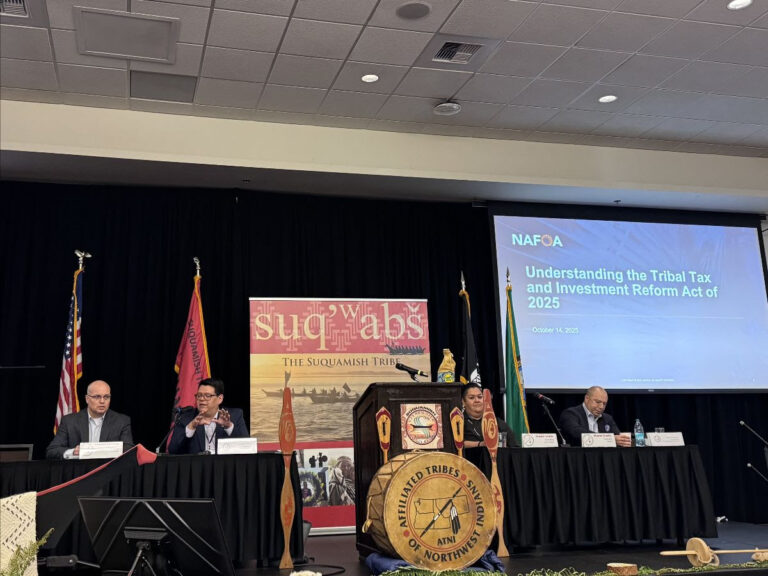1. POLICY ALERT:
Impacts of Government Shutdowns and Agency Reduction in Force on Native Communities
In testimony before the Senate Committee on Indian Affairs (SCIA) last week, Tribal leaders and advocates detailed how the ongoing federal government shutdown and agency reductions in force (RIF) are impacting Native communities. Representatives from several Tribal organizations emphasized that these disruptions constitute direct violations of the federal government’s trust and treaty obligations to Tribal Nations—obligations that are not discretionary but legally mandated and prepaid through the cession of millions of acres of Tribal lands and resources.
In his opening statement, Vice Chair Schatz (D-HI) said of the shutdown, “When the government shuts down, the trust and treaty and legal obligations do not vanish, but they are put at risk. Promises to provide healthcare, housing, education, and public safety, among many other critical services, are all on the chopping block. Communities are scrambling to secure alternate or reserve funding just in case their federal funds fall through, and several tribes have declared states of emergency due to the funding and service shortfalls” (15:45).
2. MUST READ:
Investing in Health, Tribal Nations Reap More Than Economic Benefits
The Chickasaw Nation, the Choctaw Nation, and the Pawnee Nation are three tribal nations in Oklahoma exercising their inherent sovereign rights to design and provide the health care their communities want and need. A look at how these three nations approached that work sheds light on tribal health care enterprises’ benefits for Native people and larger regional economies.
“Without compacting and utilizing our sovereignty, we would not be where we are today. It used to be that a prescribed amount was going to dental or behavioral health. Now we had the opportunity, responsibility, and accountability to listen to our tribal members, determine what their needs were, and build a system that met their needs,” Chief Gary Batton of the Choctaw Nation of Oklahoma.
Source: Fed Communities
3. MEMBER TRIBE NEWS:
Oklahoma Tribes Step in to Feed Citizens as Federal Shutdown Threatens Food Aid
As the government shutdown threatens food assistance for tens of thousands of low-income Oklahomans, the state’s American Indian Tribes are stepping in to help affected Tribal citizens. Cherokee Nation Principal Chief Chuck Hoskin Jr. announced Oct. 29 that the tribe would dedicate $6.5 million to ensuring its citizens who receive federal Supplemental Nutrition Assistance Program benefits would still receive food.
“Many of our members around the Nation rely on SNAP benefits to feed themselves and their families,” said Choctaw Chief Gary Batton. “With the federal government temporarily unable to meet its obligations, we will look for ways to help tribal members in need.”
Source: The Frontier
4. SURVEY:
2025 Small Business Credit Survey
This voluntary survey is sponsored solely by the Federal Reserve Banks. The questions are best answered by an owner or key financial decision maker of your business and will take about 10–12 minutes.
Survey responses will be aggregated for research and analysis. The Federal Reserve Banks will not disclose individual or identifiable survey responses except to trusted service providers to prepare data for analysis under strict confidentiality guidelines or if required by law or legal process. The Federal Reserve Banks may make anonymized data publicly available.
Source: Federal Reserve Banks
5. JOB OPPORTUNITY:
Chief Financial Officer, Pechanga Band of Indians
This role requires a leader who can translate complex financial data into actionable insights, foster interdepartmental collaboration, identify opportunities for innovation and efficiency and be committed to advancing the Tribe’s economic sovereignty and prosperity for future generations.
The Chief Financial Officer (CFO) serves as a key strategic partner to the Tribal Council, providing vision, direction, and oversight for all financial operations of the Tribal Government. This position is responsible for safeguarding Tribal assets, ensuring regulatory compliance and guiding the Tribe toward sustainable economic growth. The CFO will lead the development of forward-looking financial strategies that align with the Tribe’s cultural values, long-term goals, and community priorities.




